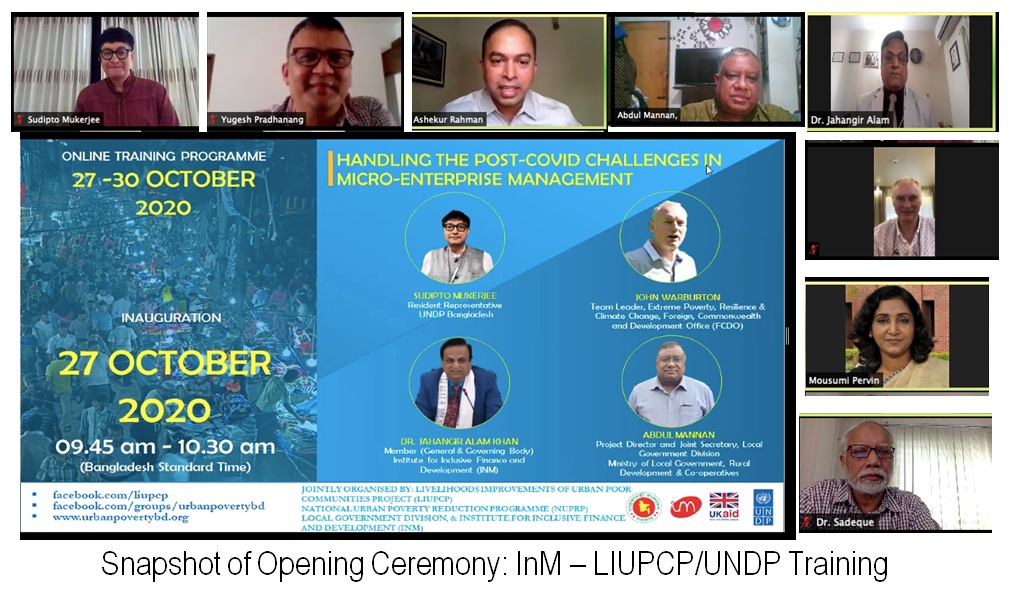
InM Training Division implemented an online training programme on ‘Handling the Post COVID Challenges in Micro-Enterprise Management’ during 27-29 October and 1 November 2020 for 23 socioeconomic and nutrition experts/officers from city corporations/pourashavas under the LIUPCP/UNDP programme participated in the training programme.

The opening ceremony, held on 27 October 2020, was moderated by Mr. Ashekur Rahman, Assistant Resident Representative Governance, UNDP Bangladesh while Mr. Yugesh Pradhanang, Technical Advisor and Project Manager (Acting), LIUPCP gave a brief on LIUPCP activities. Dr. Md. Mosleh Uddin Sadeque, Director, Training Division of InM highlighted the importance of the training and partnership areas between InM and LIUPCP. From FCDO (former DFID), Mr. John Warburton, Team Leader: Extreme Poverty, Resilience and Climate Change, & Senior Environment Adviser, British High Commission Dhaka highly appreciated the initiatives of LUPCP/UNDP and InM.
Dr. Jahangir Alam Khan, Member of the InM Governing Body put special thrust on need-based customised training rather than organising prototype training and shared his experience on enterprise promotion. The Resident Representative of UNDP, Mr. Sudipto Mukerjee, speaking on the occasion, highlighted the challenge that the poor women usually faced to decide on what to do with the grant money for sustainable economic recovery. He believed that this exclusively designed training programme would make the LIUPCP investment more effective by generating employable skills, gainful employment and a modest income for those poor families.
Mr. Abdul Mannan, Project Director and Joint Secretary, Local Government Division, MoLGRD&C and Chair of the opening ceremony reiterated that the LIUPCP, which was initiated in 2018, had five major areas including climate resilient housing for low-income urban poor, strengthened community organisations, skills and employment generation for women and girls, improved resilient infrastructure, and strengthened pro-poor urban management, policy and planning.
